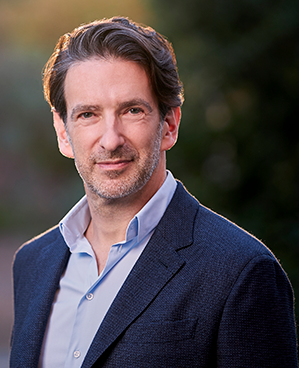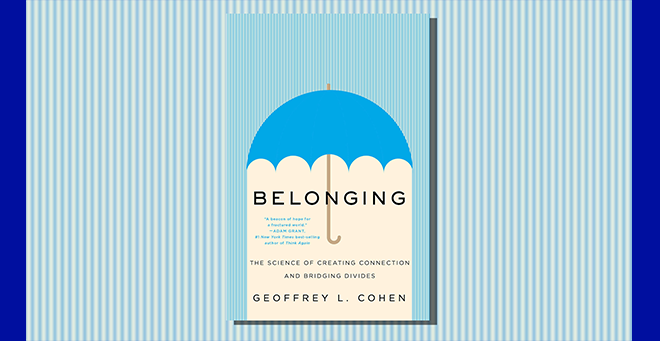
UMass Chan Medical School’s 2023 Diversity Campus Read, Belonging: The Science of Creating Connection and Bridging Divides, concluded on April 19 with a virtual discussion with the book’s author, Geoffrey L. Cohen, PhD.
In his book, Dr. Cohen, the James G. March Professor of Organizational Studies in Education and Business and professor of psychology at Stanford University, provides evidence-based techniques to help forge connections, including what he calls “situation-crafting,” that can combat racism, enhance health and improve work performance.
“Situation-crafting is all about molding situations in a way that helps people feel like they belong, and thus helps them to bring out their collective best,” Cohen told moderator Marlina Duncan, EdD, vice chancellor for diversity and inclusion.
Cohen summarized one of his studies, an intervention he and colleagues did with college freshmen, that shows the benefit of situation-crafting.
In the study, college seniors told a group of freshmen that it’s normal to feel like they don’t belong in college and that it will get better. Cohen and colleagues found the GPA for the students of color who received those messages increased over time. By the time they left college, they had closed the achievement gap by about half. Cohen said this is just one example of why messages need to be tailored, targeted and timely.
“At the time that we had conducted this research, a lot of people thought, ‘Oh, the problem with minority underachievement at college is that they feel insecure,’” Cohen said. “We found it’s about that sense of connection and the possibility of being excluded from constructive social relationships, so we tailored that experience to the specific concerns that the people that we want to help have.”
When Dr. Duncan asked Cohen to discuss the notion of stereotype threat, he described a study in which Black college students performed half as well as white students on a test framed as an IQ test that measured ability. When the test was framed as a puzzle, the results for both groups of students were almost the same.
“The stereotype that if I perform poorly, it’s going to confirm this negative stereotype about my race is no longer relevant,” Cohen explained. “The reality of stereotypes, racism and sexism creates a very different psychological experience for people who are trying to get a foothold in institutions and the workplace. When we’re trying to understand the experience of people we want to support, we need to understand that psychological situation.”
Chancellor Michael F. Collins encouraged attendees to consider how they can improve their own interactions, taking Cohen’s advice to pause and listen before responding.
“As we strive to be a more diverse and inclusive community, I think it really goes without saying that our world is deeply troubled by our inability to see beyond what separates us from each other,” Chancellor Collins said.
